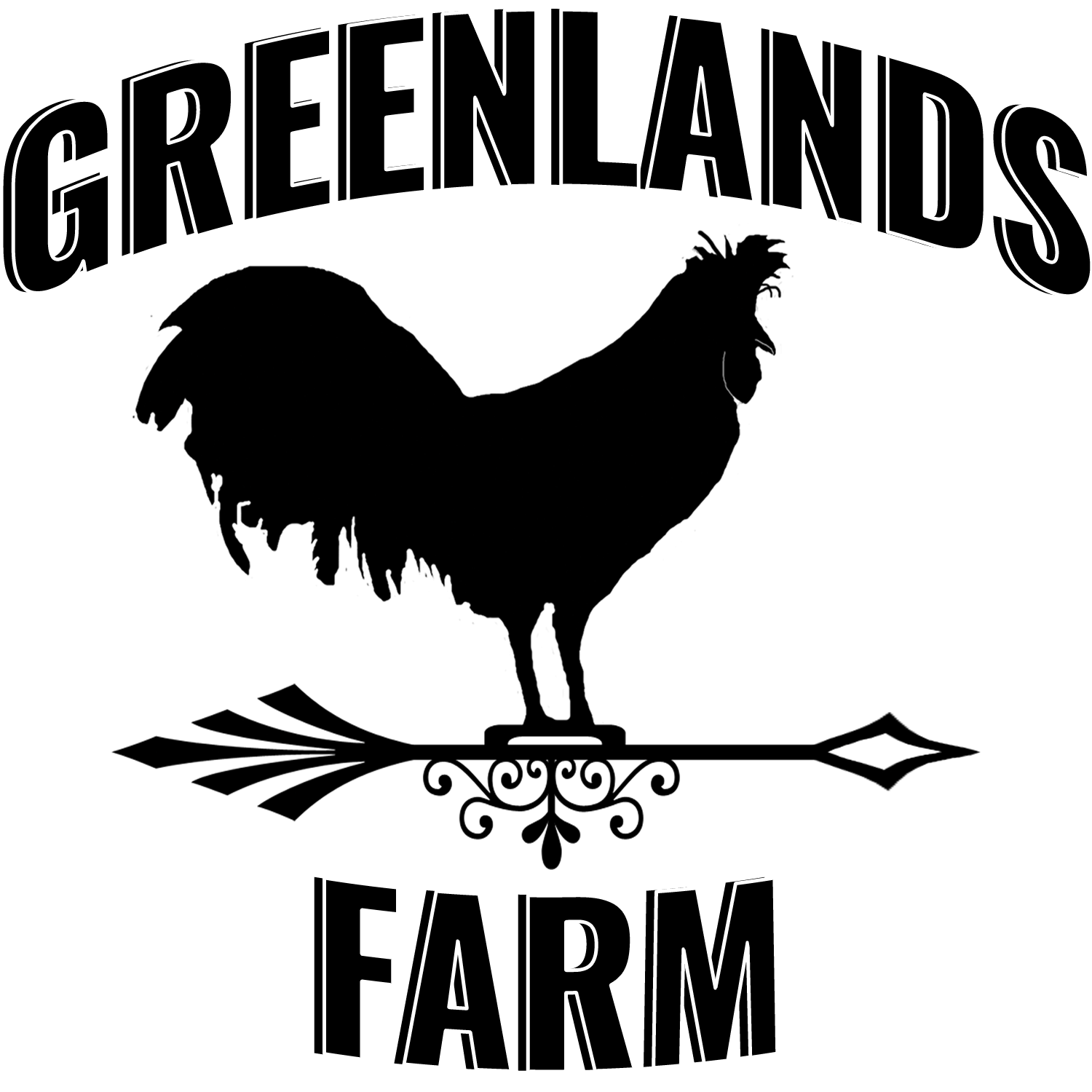Greenlands Farm is a beautiful and relaxed gathering place for celebrations (weddings, receptions, parties, corporate events) and farm experiences like wine tastings, farm stand, educational programs, and RV camping. The farm family loves to share the peaceful and extraordinary homestead they have created together as a family, “The love of this land and life is felt here.” Leave your busy world behind you and come experience it, we promise it’s like no other farm. Call or visit our webpage and social media to find out more about Greenlands Farm. Video created and produced by www.agapevisuals.com
THE FARM
A family owned and developed homestead farm since 2001
Greenlands Farm is a small, three generational sustainable modern homestead farm located in rural North Carolina in a spot known locally as Half Hell, but better known as Bolivia. All three generations are working the farm! This woman-owned farm is a true reflection of the homestead farm life: growing organic produce, baking fresh in the farm kitchen with farm grown ingredients, and composting vegetables and scrapes on the farm. The farm family lives the sustainable lifestyle they teach about!
The farm features a Roadside Market Farm Stand most weekends (Friday & Saturday, 10a-5pm, Spring - Fall | Saturday only, 10a-4p, Winter) featuring their non-gmo, pasture-raised eggs, seasonal organic produce, honey from the farm’s bees, canned goods from farm produce, and occasionally some baked goods. Their support reaches beyond their own small farm featuring small, family wineries around the world. The farm is making goals to add soft cheeses with non-GMO milk made from their goat’s milk and soon… cow’s milk!
The farm is open by appointment for educational group tours, as a wedding/special occasion venue, and sometimes for some great fundraiser events for the Helpers Of Our Farm (HOOF), offering educational and therapeutic programs. HOOF’s mission is to provide intriguing educational programs and therapeutic programs through farm animals, some of which have been rescued, rehomed, adopted, and donated. With the help of these animals and Greenlands Farm, HOOF teaches homesteading, environmental science, animal science, and animal welfare. HOOF’s hope is to create a better world for animals and the environment through knowledge. HOOF is a platform for the community to learn, grow, and volunteer. Read more about HOOF at www.hoofnc.org.
Greenlands Farm is also breeding rare and beautiful birds, including breeds like Belgian Malines, Bearded Silkie, Jumbo Coturnix Quail, Midget White Turkey, Jumbo Guinea Fowl, Grey Indian Runner Duck, and Indian Blue and Black Shoulder Peafowl. Greenlands Farm is NPIP and AI Clean certified. Our breeds have been researched and carefully selected for beauty and gentleness. Greenlands Farm is also a member of the Livestock Conservancy and is proud to be preserving breeds.
When you come to Greenlands Farm as a guest for a tour or your special event, we suggest you leave the busy world behind and enjoy a slower pace: take time to hear the birds and bugs singing, take time to chat, and take time to connect to the farm lifestyle. Although a working farm is a busy life for the farm family, their connection to their family, the environment, and homestead farm life is strong and they want to share it with you.
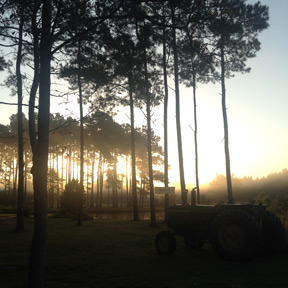
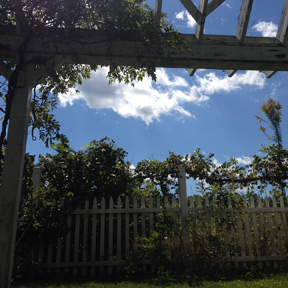
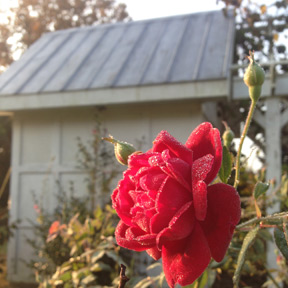
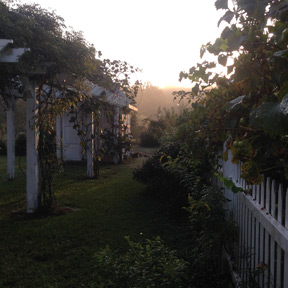
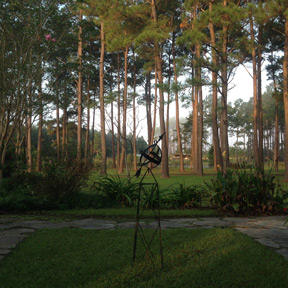
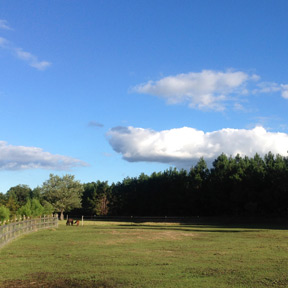
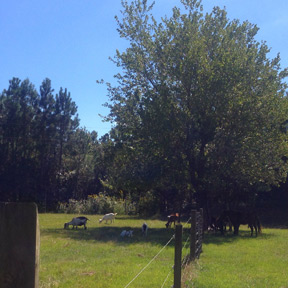
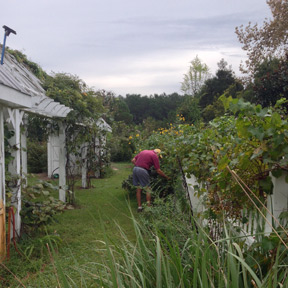
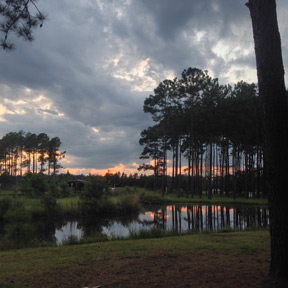
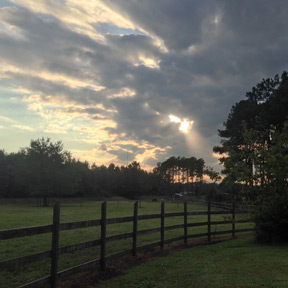
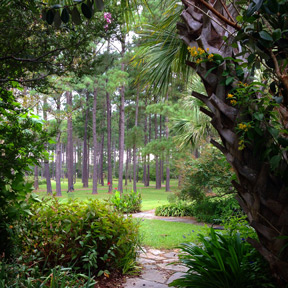
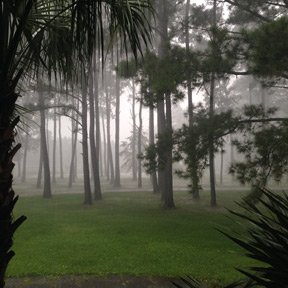
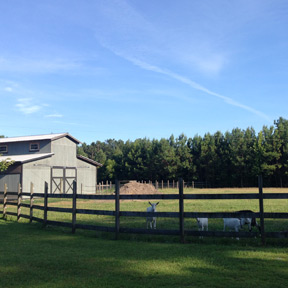
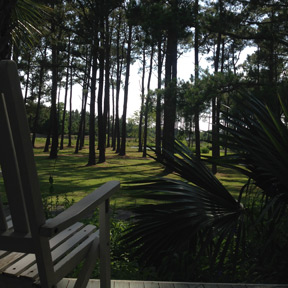
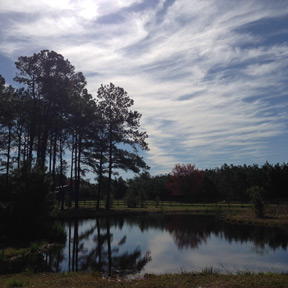
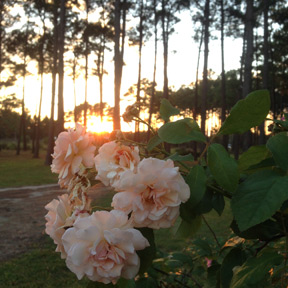
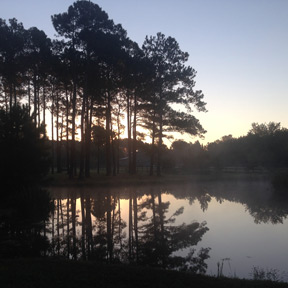
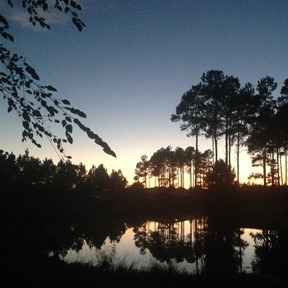
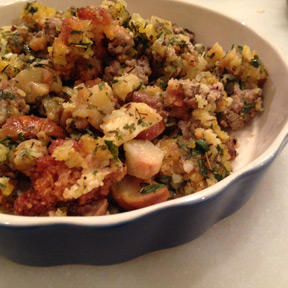
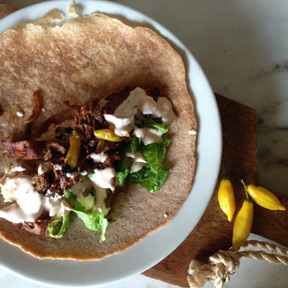
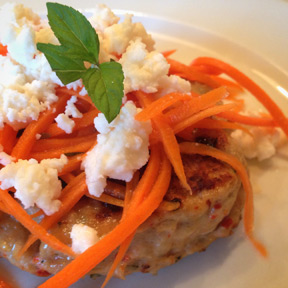
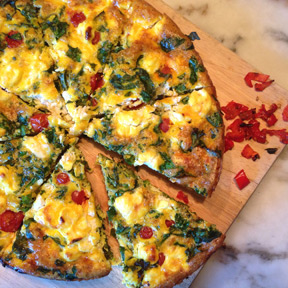
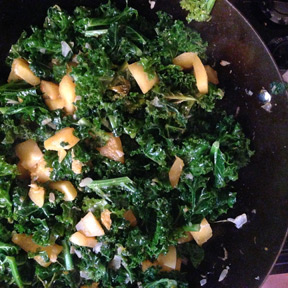
If you’d like to stay up-to-date with happenings and available farm products at their Roadside Market, please sign up for the farm’s newsletter.
“As few as possible should be without a little portion of land. The earth is given as common stock for man to labor and live on. The small landholders are the most precious part of the state.”
The Farm Family
Greenlands Farm is home to the Burkert and Kelley families, who together, practice the full circle system known as Homestead farming. Henry and Heather purchased the property in 2001 and have developed it over the years into what you see today. Their daughter, Maud Kelley, moved from the Charlotte area with her husband and family in 2012 to join her parents in developing the farm and becoming part of the homestead lifestyle. In 2017, Maud was given ownership and the farm became woman owned! Ryan and Maud have two children, Jules and Rhett, who love helping out around the farm. The Kelley family lives on the main property and Maud’s parents live on the farm’s tract down the road. Together, they live off of what the farm produces, cooking family dinners and often sharing their lifestyle on instagram, facebook, and/or twitter.
Homestead Farming
Many of the first free land proponents of the Homestead Act of 1862, found inspiration in the words of one Virginia planter who wrote: “As few as possible should be without a little portion of land. The earth is given as common stock for man to labor and live on. The small landholders are the most precious part of the state.” Another of this planter’s writings contained the bold assertion that “all men are created equal.” He was, of course, Thomas Jefferson. Unlike our ancestors, many of whom lived on homestead and small farms, most of us can buy our food from the grocery store. Our family has decided to put the hard work and time into making and producing what we can to sustain our selves and offer our goods and products to the community. It’s our way to staying connected to the earth, our environment, and our family.
Sustainability
We practice sustainability by producing products from our farm with skills and techniques that are sensitive to the environment, public health, the community, and our animals.
Self-sufficiency
What does it mean to be self-sufficient? It means to rely only on yourself for food, water, and products for every-day life. Is it easy? Not all the time! It takes skill, time, and hard work. Are we completely sustainable at Greenlands Farm? No, we have to buy things that our farm can’t produce at stores.
Ways that we are self-sufficient:
1. Vegetables
2. Eggs
3. Bread
4. Sweet treats…like cake, cookies, and ice cream!
5. Canning and Preserves
6. Milk, yogurt, cottage cheese, and soft cheeses
7. Soap
8. Other body products like lotion and deodorant
9. Laundry detergent
Part of self-sufficiency is also making a way to pay for other needs of our family, so we sell many of the items we produce on the farm at the farm store.
Farm animals
Farm animals play a big role in most farm operations. Our animals do attribute to our self-sufficient and sustainable lifestyle. Three animals that play the biggest rolls are our chickens, our goats, and our pigs. The chickens lay eggs that we use in baking, we eat, and we sell. We don’t eat any of our chickens, but many farms do raise chickens for meat. Our goats are milked and we pasteurize to drink and make yogurt and cheeses out of for our family. We also use the goat’s milk to make goat’s milk soap, which we use and also sell in the farm store. Our pigs play a big role in our sustainable farm. They eat all the vegetables not deemed perfect for selling, eat our trimmings from processing vegetables, and any food that is past it’s prime. They make sure nothing goes to waste! Horses and donkeys would have plowed fields for our ancestors and towed as well. The tractor and other farm vehicles have replaced their use. Our ponies help out our farm by educating about animal welfare and hubandry, which help support the cost of feeding and caring for each animal. Sheep could still be used for wool and meat today. The llama would be used for felt. Although we do keep the felt of our llamas, we use it for teaching only.
Water
Three of our family members are Landscape Architects and have made our farm a little different than most you will find. We designed our farm to process all the rain water or stormwater run-off before it goes back into the watershed, storm drains, and our ground water (that we eventually drink). Do you know why we did this? Well, what are animals normally really good at doing besides being cute…lots of peeing and pooping. We don’t want to drink water that has been contaminated with that, and we don’t want our neighbors or you drinking it either. So, to give all clean drinking water we have system that includes swales, plants, a pond, smaller pond, weir, and ditch. We also have a high traffic system up by the barn that collects and processes water right where it’s at before it infiltrates back into the ground. Read our educational board on-site. Updates to our pasture and water system, along with the educational board were kindly funded by a grant from BEMC!
Another sustainable practice is our rain barrels that we collect rain water in to give drinking water to our barn animals. What are rain barrels and why are they considered a good practice? They collect and store water from rooftops to use later. Water normally pour off the roof and be lost as stormwater run-off. If instead you collect it, you can save water because you the rain water instead of a man-made water source (tap water). Saving water not only helps protect the environment by diverting water from storm drains (helps not over load drainage systems) but also helps generate less storm-water run-off so there is less flooding. Plus, it’s FREE water!
The Lower Cape Fear Stewardship Development Coalition honors residential, commercial and public development projects in Brunswick, Pender and New Hanover Counties that demonstrate outstanding environmental stewardship. In 2022, Greenlands Farm received and award of “Outstanding Stewardship”. This award is the highest level of distinction available in the Stewardship Development Awards Program™. This honor is only bestowed on projects that have achieved high marks in all applicable areas. The project must be sufficiently complete and demonstrate accomplishment or expected accomplishment of project goals to receive “Outstanding Stewardship” status. The Greenlands Farm family is proud to be stewards of the environment.
Organic & Sustainable Farming
You would think growing a vegetable garden would always be a good thing. But, it’s not always the case. We grow our vegetables with organic and natural fertilizers, pest controls, and soil amendments because you can harm yourself and the environment with a number of “normal” processes used on non-organic vegetables you buy at your grocery store. There is quite a bit of proof that chemical herbicides and pesticides, synthetic fertilizers, and genetically modified crops are not good for our health or the environment. Some argue that organic gardening is impractical and expensive, and only for hippies. The interesting thing, is nothing could be further from the truth! Think back to what our ancestors did before us. Food was grown and raised for thousands of years before the invention of today’s “normal” way of growing our food with harmful practices. Initially, it may cost some farmers and home growers a little more to make the switch, but in the long run the costs go down. Conventional gardening does quite a bit of harm to the environment, disrupting the natural balance of lives of the animals and plants around us. Chemicals artificially increase the growing potential and at the same time remove the plant’s ability to regulate moisture and sustain the beneficial insects, worms, and microbes that could support the plant’s life. Did you know that chemical pesticides have increased by 50% world-wide over the last 30 years which amounts to 2.5 million tons applied annually? Large companies and the government make a staggering $35 billion a year, and they work hard to promote their agenda. The effectiveness of these pesticides is declining and they keep putting more on, increasing toxicity. The problem with these chemical pesticides is not only health concerns, it’s the bugs. Pesticides are creating secondary pest problems: no more bugs to eat other bugs. Can you believe that less than 1% of the world’s insects are considered pests…the other 99% play an important role in our food chain? There are many organic pest solutions, one is using more bugs! There are beneficial insects that attack and destroy only insects and are harmless to people, plants, and pets. Some you may see on Greenlands Farm are soldier flys, predatory flys, and lady bugs. So why not grow organic? Makes a lot of sense to get some peace of mind about just how healthy your vegetables are. Food production and consumption should never be at the expense of the health of humans, animals, or the environment.
Compost
One way we practice sustainable and organic farming is by composting. It’s a free way to amend soils! We recycle all our household waste that the pigs can’t eat (like egg shells), barn waste (including old hay and stall muck), and any weeds we pull from the garden that can’t be fed to the animals. Compost does amazing things to soils, including maintain a neutral pH, helps soil hold more nutrients, and more water. Did you know that if you use compost to amend your soils, it can quadruple the soils ability to store water?! It also feeds earthworms and microbial life in the soil both of which support a plant’s health.
The Greenlands Farm family loves the environment and chooses to recycle, reuse, and reduce waste whenever and wherever we can. Take a look at the biodegradable packaging used in the store that can be composted right on the farm! Learn more about composting at our outdoor classroom located outside the farm store, down the road on the way to the pond. The outdoor classroom was a gift provided by a grant through ATMC!
